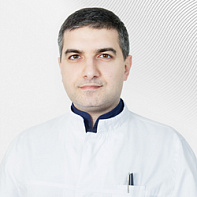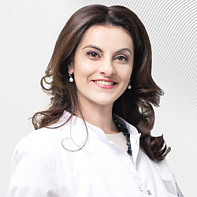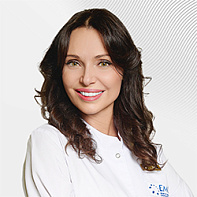Hypoxytherapy
 It is known that in response to a controlled short-term decrease in oxygen intake, all adaptive mechanisms are activated and the body's recovery is stimulated by internal resources. The unique technology simulates high-altitude training conditions (up to 6,500 meters).
It is known that in response to a controlled short-term decrease in oxygen intake, all adaptive mechanisms are activated and the body's recovery is stimulated by internal resources. The unique technology simulates high-altitude training conditions (up to 6,500 meters).
After preliminary testing of the patient's body's functional capabilities, the ReOxy® device automatically calculates individual load parameters and maintains them throughout the entire workout.
Indications for ReOxy® therapy
Anti-age
-
Reduction of biological age
-
Prevention of premature aging
-
Memory improvement;
-
Improvement of microcerculation in the vessels of the brain and metabolic processes in nerve cells
-
Correction of age-related functional changes
-
Increased antioxidant levels
-
Increase physical endurance
Aesthetic medicine
-
Improvement of skin tone and elasticity, reduction of cellulite manifestations
-
Improvement of microcirculation (increased levels of VEGF – vascular growth factor)
-
Reduction of rehabilitation time after the use of hardware techniques (laser, radio frequency, etc.)
-
Acceleration of healing processes after invasive procedures and plastic surgeries
-
Improving the effectiveness of aesthetic procedures (especially in older patients)
Weight loss
-
Accelerated weight loss, increased activity of fat-burning enzymes
-
Decreased appetite and increased levels of leptin (an appetite suppressant hormone)
-
Increased synthesis of growth hormone (a powerful fat-burning hormone)
-
Lowering cholesterol levels
-
Reduction of glucose levels;
-
Adaptation to intense physical activity
-
Reducing the stress effects of low-calorie diets
Improving athletic performance
-
Increasing the reserve capabilities of athletes (adaptive potential)
-
Improving endurance and physical performance
-
Increasing resilience to emotional overload and various types of stress
-
Adaptation to field training in the Middle mountains (reduction of acclimatization time)
Sports medicine and rehabilitation
-
Rehabilitation of athletes with overtraining syndrome
-
Maintaining the functional reserves of the athlete's body (passive training) during periods of forced reduction of physical activity (injuries, diseases)
-
Protecting the heart from overloads
-
Normalization of sleep
Cardiology
-
Hypertension
-
Chronic heart failure
-
Coronary heart disease
-
Rehabilitation after myocardial infarction and heart surgery
-
Preparation for heart surgery
-
Prevention of cardiovascular diseases
Metabolic diseases
-
Diabetes mellitus
-
High cholesterol
-
Obesity and metabolic syndrome
Neurology
-
Rehabilitation after stroke
-
Rehabilitation after spinal injuries
-
Dementia, Alzheimer's disease
-
Dyscirculatory encephalopathy
-
Migraine
-
Vertebro-basilar insufficiency
-
Transient ischemic attacks
-
icp
-
Epilepsy
Gynecology
-
Preparing the body for pregnancy and childbirth
-
Toxicosis of pregnant women
-
Chronic inflammatory diseases of the genitourinary system
Narcology / Psychiatry
-
Alcohol and drug addiction
-
Tobacco addiction
-
Endogenous depression
-
Epilepsy
-
Eating disorders
-
Neuroses
Preoperative preparation
-
1-2 procedures before elective surgical treatment are sufficient to prepare the body for conditions of forced hypoxia during anesthesia and surgical intervention.
Doctors


.jpg)
.jpg)
.jpg)










